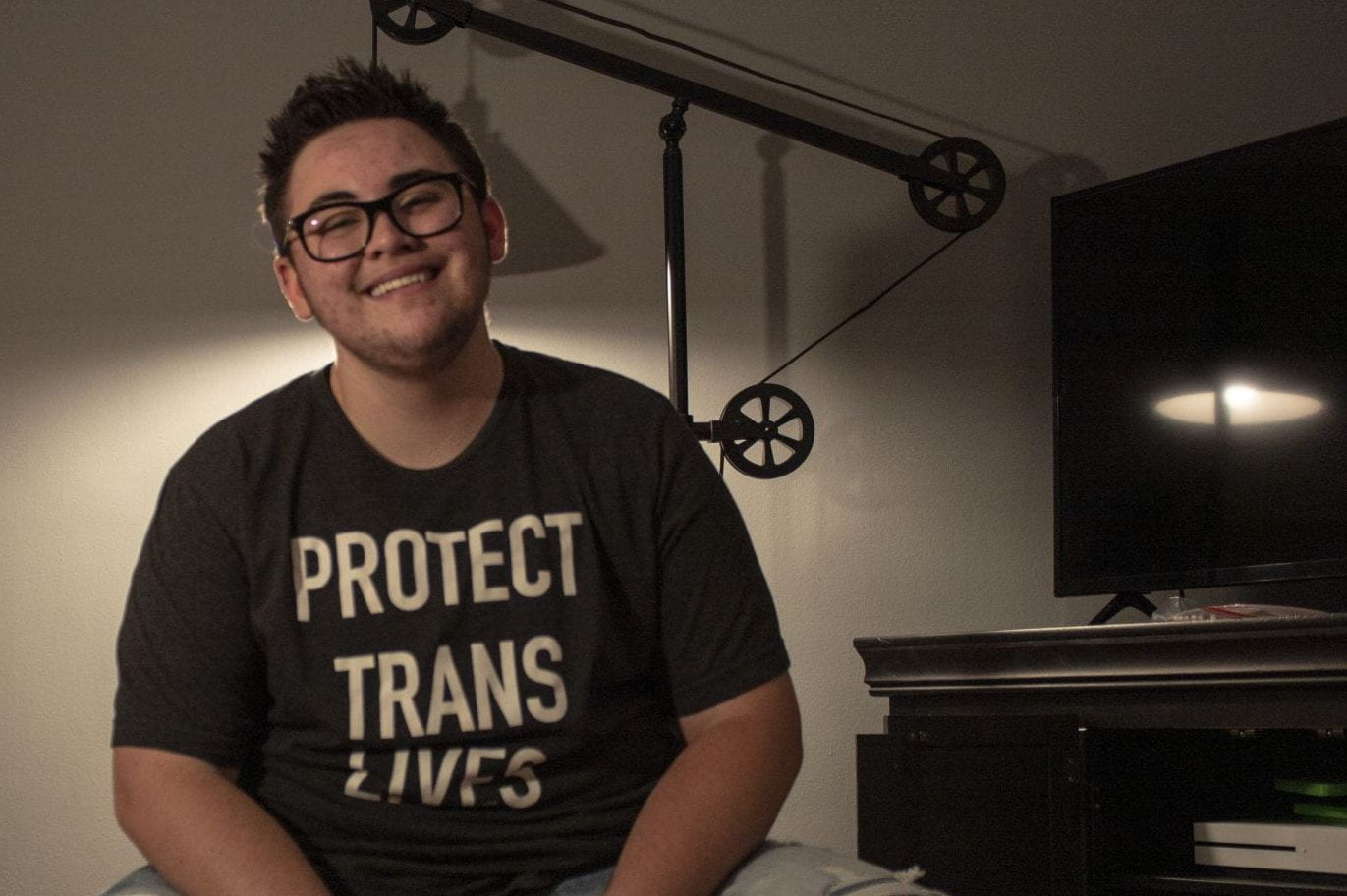Wes Kirkbride has a rainbow flag in his office. The Assistant Director for Freshman and Sophomore Initiatives in Undergraduate Advising wants to make students feel welcome.
“When I first came out, it was important to me that students feel like they’re in a safe space,” he said.
Being out and proud at work wasn’t always comfortable for Kirkbride though. He came out at 33. Raised in the Southern Baptist Church, he grew up believing being gay was a sin. Yet as Kirkbride questioned his sexuality, he did his own reading.
“When I came to terms with the idea that the Evangelical disdain for the gay community is just six misinterpreted Bible verses, it was this epiphany that I’d been sold this lie for years,” he said.
Kirkbride started to find a community in the LGBT+ Christian group Renovus. As he got more comfortable in his own skin, he started bringing his pride to work.
“I went through a process of wondering what was appropriate, like wearing a rainbow watch wristband, but now I just do it,” he said. “I’m very thankful we have that supportive community at Georgia Tech.”
He wants to bring that inclusive spirit to his students. To Kirkbride, pride means not hiding who he is—whether it’s rainbow office décor or mentioning dating men in conversation—and standing up for others.
“It’s very important to me to create a safe space especially for transgender community,” he said. “The community has really struggled lately, and I have a handful of trans students, so I am cognizant of their feelings and trying to make students comfortable in the College of Computing.”
Adelle Frank
What does pride mean to you?
At its heart, pride highlights key aspects of being human. It means being free to express my deepest feelings for my chosen family and valuing that freedom. It advocates for the worth of all gender presentations and consensual relationships. Pride is a celebration of love and self-expression.
How do you identify in the LGBT+ community?
I use she/her pronouns and identify as a lesbian.
Do you have any advice for someone who is thinking about being more open about their identity at work or school?
I have these main pieces of advice:
a. Safety First: Your physical and emotional safety takes priority.
b. Do Your Research: Know the relevant legal policies and unspoken social assumptions of your workplace or school. When I came to GT 10 years ago from Emory, I read the discrimination policy and knew how GT was ahead of the general USG policy on offering me benefits for my partner. During the interview process, I was able to get a sense of the culture in the specific department I was applying to.
c. Find Allies: Find allies and build your social support structures (both professionally and personally), so you have people to lean on if things get difficult.
What does queer community mean to you?
A safe space where you can be open to people defining their own gender identities and ways of loving.
What’s one thing allies can do to support trans, nonbinary, and gender non-conforming colleagues?
Let other people tell you who they are. Honor their name and pronouns, but also listen for their whole selves. Avoid putting people into tiny boxes based on a few categories. If you take time to get to know people more fully, you’ll find that we are delightfully complex beings.





